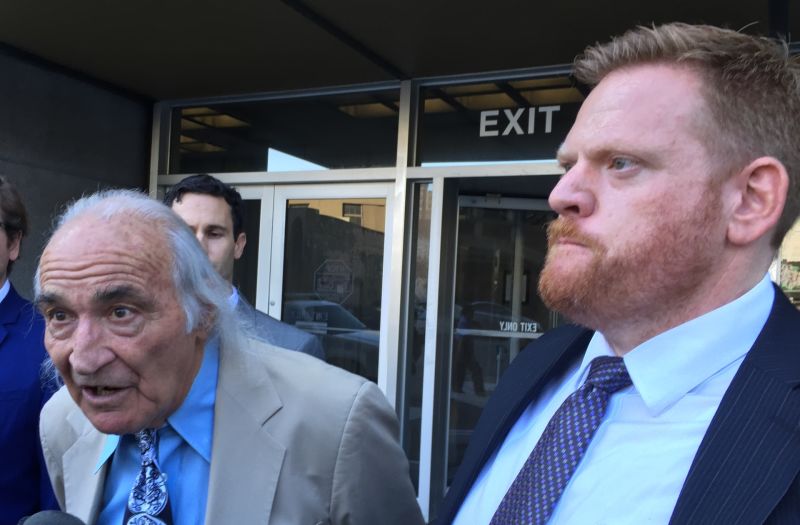Li and Chow got into a fistfight, he said, and Li knocked Chow down. The alleged gang boss was bleeding.
“And I just kept saying, ‘F---, he’s going to kill me,’” Chanthavong said. A few days later, he said he got a call from Chow.
“'You guys are no longer part of the association,’” the witness said Chow told him. “'You are no longer my brother.’”
He said he Li later told him that “Jimmy was killed in Mendocino.”
“He was very concerned that he was next,” Chanthavong said.
Defense attorney Tony Serra sought to discredit the admitted drug dealer and gun runner during cross examination, asking him repeatedly about his cocaine, alcohol and steroid use and his criminal record.
"You don’t have respect for the law do you?" Serra asked. "You sell cocaine. You sell crack. You sell guns. You sell marijuana, and when you do all this, you've got two felony priors, isn't that right?"
Chanthavong said that was all true.
"How much crack did you put out on the street, you personally?" Serra asked. "Do you have any remorse that people who smoked the crack are severely psychologically damaged for their lifetimes? You didn’t care as long as you make a buck?"
Chanthavong answered, "If they didn't care, why should I? ... I never forced them. ... They made their own decision."
The witness told both the prosecution and defense that he was in Chow's "outer circle." He's half Thai and half Laotian, Chanthavong said, and he grew up in a refugee camp in Thailand. He does not speak Cantonese and was an honorary, not official, member of the Chee Kung Tong that Chow led.
The court heard the first clip of reportedly thousands of hours of audio recorded during the FBI's 8-year investigation into Chow and dozens of people connected to him. It was collected from phone taps, bugs and body wires, including one worn by an undercover FBI agent who went by the name David Jordan. He posed as an East Coast mafia member and infiltrated the Chee Kung Tong.
On the tape played Thursday, Chanthavong drunkenly bragged to Jordan about having a "black ops team" that would commit violence on his behalf, something he said he made up to try to impress the false mobster.
"I gotta figure out how we can make you some money, seriously," the agent said on the tape. Chanthavong said he took this to mean through marijuana trafficking. They would do business over about a year beginning sometime in 2011, Chanthavong said, despite his initial inkling that the Jordan was an undercover cop.
"Chow told me he knew Dave for a few years and he knew Dave's boss or business partner," Chanthavong said. Jordan's business partner was another FBI agent who spoke Cantonese and went by the name Jimmy Chan.
Initial marijuana deals between Jordan and Chanthavong -- he ran four illegal grow houses at different times around the Bay Area -- spilled into gun sales. Chanthavong said he sold Jordan three weapons. The agent pressured to him to get get guns as quickly as possible, but Chanthavong said he didn't want to sell a gun with "bodies on it."
"I didn’t want to provide him with just any gun off the street because you run the risk of getting something dirty ... used in a murder," he said.
Serra told Chanthavong the charges he's admitted to in a plea agreement with the prosecution could land him in prison for 140 years, and one carries a possible life sentence.
"Isn’t that why you’re here?" Serra said. "You don’t want to go away for 140 years or 40 years or 20 years or 10 years. ... You're seeking only to save your own skin."
Not entirely, the witness answered. He said he was angry that Chow had vouched for undercover FBI agents, and he's seen transcripts of recorded conversations in which Chow talks about he possibility that Jordan might be an FBI agent.
"I did it because I was pissed off," Chanthavong said. "I was lied to. I was betrayed."

